On Air Now
The Smooth Late Show with Danny Pietroni 10pm - 1am
11 March 2022, 16:38 | Updated: 27 July 2023, 15:00
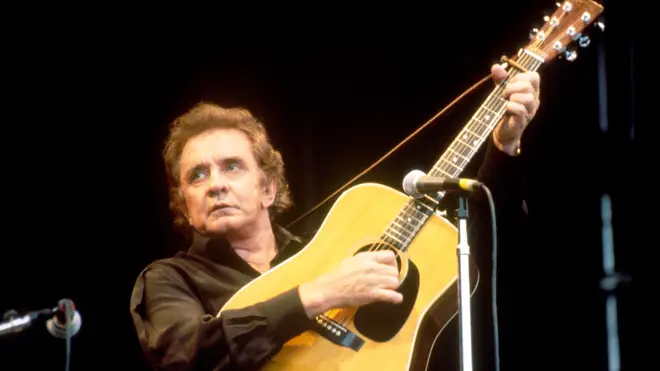
Johnny Cash was a true music icon.
Known as The Man In Black, Johnny Cash was an American singer and actor. His music was known for its themes of sorrow and redemption, and he will be remembered for his deep and distinctive voice.
Johnny Cash found fame in the mid-1950s, and he had massive hits with the likes of 'Folsom Prison Blues', 'I Walk the Line', 'Ring of Fire', 'Get Rhythm', 'A Boy Named Sue', 'Jackson' and 'Man in Black'.
He kept recording many albums towards the end of his life, including various covers of songs by contemporary rock artists such as 'Hurt' by Nine Inch Nails and 'Personal Jesus' by Depeche Mode.
Johnny is still one of the best-selling music artists of all time, selling over 90 million records worldwide. His music spanned country, rock and roll, blues, folk, and gospel.
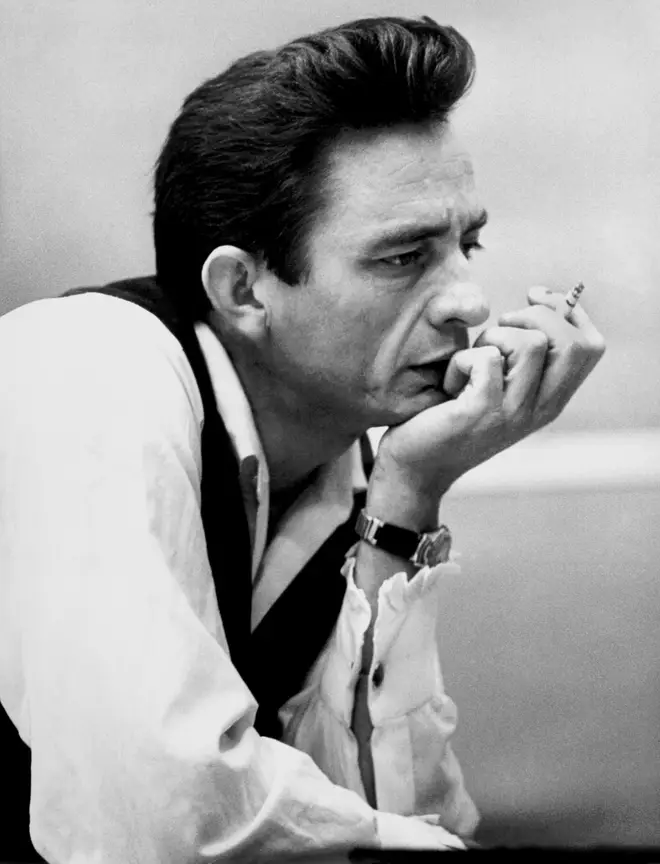
Johnny Cash's birth name was actually J.R. Cash.
He was born on February 26, 1932 in Kingsland, Arkansas.
His parents were Carrie Cloveree (née Rivers) and Ray Cash. He had three older siblings, named Roy, Margaret Louise, and Jack, and three younger siblings, named Reba, Joanne, and Tommy (the latter became a successful country artist too).
His mother wanted to name him John, and his father preferred to name him Ray, so J. R. was chosen as a compromise.

Johnny Cash - I Walk the Line (The Best Of The Johnny Cash TV Show)
When Johnny enlisted in the Air Force, he was not allowed to use initials as a first name, so he changed it to John R. Cash. In 1955, when signing with Sun Records, he started using the name Johnny Cash.
Aged just five, he worked in cotton fields with his family, singing with them as they worked. His family's economic and personal struggles during the Great Depression led to him sympathising for the poor and working class later in life, and it inspired many of his songs.
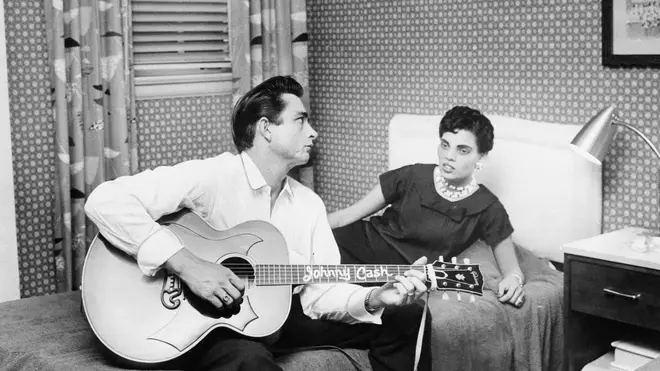
In 1951, while in Air Force basic training, Johnny Cash met 17-year-old Italian-American Vivian Liberto at a roller skating rink in San Antonio, Texas.
In 1954, one month after his discharge, the couple married in San Antonio.
They had four daughters together: Rosanne, Kathy, Cindy, and Tara.
Liberto filed for divorce in 1966 due to Cash's severe drug and alcohol abuse at the time, as well as his constant touring, and his repeated acts of adultery with other women. Their four daughters were raised by their mother.
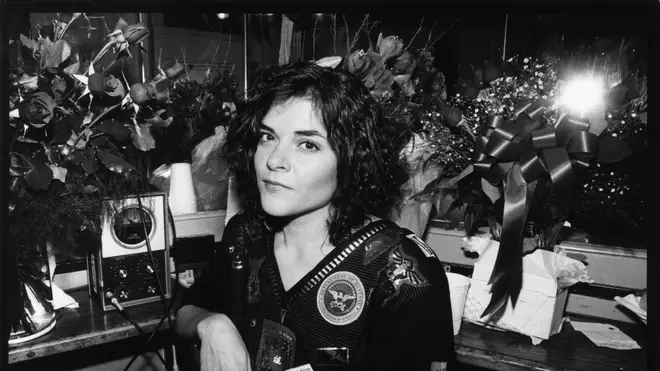
Johnny Cash met June Carter of the iconic Carter Family while out on tour, and the two quickly became infatuated with each other.
In 1968, 13 years after they first met at the Grand Ole Opry, Cash proposed to June. The couple married in March that year, in Franklin, Kentucky.
They had one child together, John Carter Cash, born 1970.
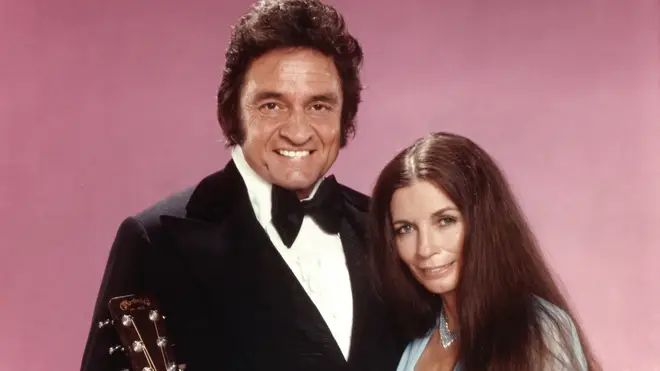
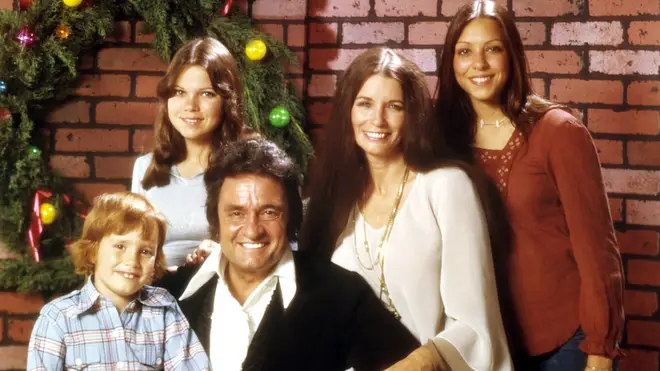
Johnny Cash also became step-father to Carlene and Rosie, June's daughters from her first two marriages.
They stayed married for 35 years until June's death in May 2003. After June's death, Cash stated his belief that his only reason for living was his music, and he died only four months later.
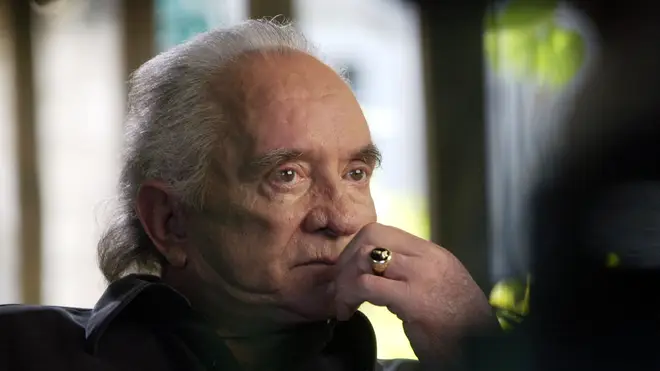
While hospitalized at Baptist Hospital in Nashville, Johnny Cash died of complications from diabetes on September 12, 2003.
He was aged 71.
Cash was buried next to June Carter at Hendersonville Memory Gardens near his home in Hendersonville, Tennessee.
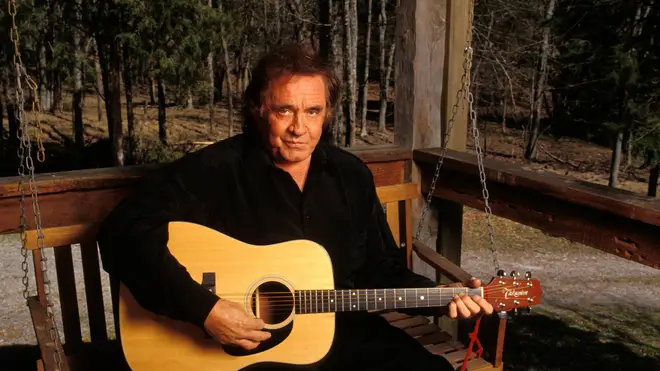
By the early 1970s, Johnny Cash had established his public image as 'The Man in Black'.
Cash regularly performed in 100% black suits with a long, black, knee-length coat.
This was rather different to the rhinestone suits and cowboy boots usually worn by most male country acts of the time.
Cash said that he wore all black on behalf of the poor and hungry, as well as the "prisoner who has long paid for his crime", and those who have been let down by age or drugs.
He said: "With the Vietnam War as painful in my mind as it was in most other Americans, I wore it 'in mourning' for the lives that could have been' Apart from the Vietnam War being over, I don't see much reason to change my position.
"The old are still neglected, the poor are still poor, the young are still dying before their time, and we're not making many moves to make things right. There's still plenty of darkness to carry off."